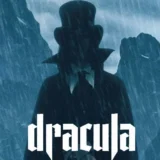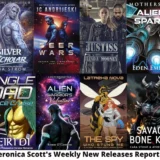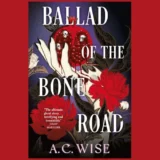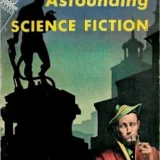
Unidentified Funny Objects, the annual showcase of humorous science fiction and fantasy short stories, has returned for a sixth year. I will get straight to the point. In my estimation, UFO6 is the best volume in the series so far (edging out UFO4 as my previous favorite). I base this judgement on the average quality of the stories, the number of times I laughed, and the presence of some real gems. UFO6 achieves this in spite of the abundance of epistolary stories noted by Editor Alex Shvartsman in his forward. But I will come back to that later after we take a look at what you will find in UFO6.
This year’s selection includes many headliners well known for their sense of humor, while other authors may be new to the reader. Eleven authors have had stories in previous UFO anthologies, and two, Mike Resnick and Jody Lynn Nye, have appeared in all six UFO volumes. Once again, Tomasz Maronski provides the cover art and Barry Munden gives us the interior illustrations.
There are twenty stories in all, with about half being science fiction and the other half fantasy. All of them are original to this anthology.
“A Game of Goblins” by Jim C. Hines – A cantankerous goblin cook is forced into betrothal to the younger brother of a human leader who is scheming to use her to lay claim to the Onyx Throne and thereby rule an army of the dead. This highly entertaining fantasy parody pokes fun at fantasy memes while also delivering a clever plot. Fun for fantasy fans, and maybe even those who are lukewarm toward the genre.
“The Breakdown of the Parasite/Host Relationship” by Paul R. Hardy – Told via a series of chat transcripts. A mission captain is caught in the middle of an escalating feud involving a human who is contractually bound to provide life support to a fungus/plant creature installed around his spine. The parasite/host time-share of body control provides comedic back and forth acts of revenge.
“From This She Makes a Living?” by Esther Friesner – A dragon starts gobbling up people in Chelm, the mythical town of Jewish folklore populated by fools. The town council meets to discuss the situation, but in usual Chelm fashion, doesn’t actually do anything about it. It is up to a new arrival from the real world to save the day. Amusing Jewish humor, with footnotes to explain Yiddish terms being some of the funniest parts.
“Twenty-Nine Responses to Inquiries About My Craigslist Post: Alien Spaceship for Sale. $200, You Haul” by Tina Connolly – What it sounds like. All three of Connolly’s UFO contributions over the years have been of an epistolary nature. Her last entry in UFO4, “Texts from My Mother About the Alien Invasion,” was funny, but in this one the humor didn’t quite work for me, and it is too skeletal to hold up without that.
“Tyler the Snot Elemental Scours the Newspaper, Searching for Change” by Zach Shephard – A snot elemental tasked with guarding a forgotten lighthouse gets bored and seeks advice from an orc that runs a daycare/fortune telling business. The orc reads dirty diapers the way others read tea leaves. Lots of word play, double meanings and puns.
 “Agent of Chaos” by Jack Campbell – A sword-bearing writer has no choice but to follow her muse through a cold torrential rain to a cave where the god of chaos tasks her with delivering his manuscript to his agent. The setting is a publishing-themed fantasy world, complete with such characters a priest-editors and the goddess Inspiration. This is a brilliant infusion of the frustrations of being a writer, the publishing industry, and the forces that compel writers to suffer through it all. Hilarious and oh so true. Granted, my assessment of this story may be influenced by my being a writer, but others should enjoy it too, though possibly not quite as much. Writers and others in the industry will love it.
“Agent of Chaos” by Jack Campbell – A sword-bearing writer has no choice but to follow her muse through a cold torrential rain to a cave where the god of chaos tasks her with delivering his manuscript to his agent. The setting is a publishing-themed fantasy world, complete with such characters a priest-editors and the goddess Inspiration. This is a brilliant infusion of the frustrations of being a writer, the publishing industry, and the forces that compel writers to suffer through it all. Hilarious and oh so true. Granted, my assessment of this story may be influenced by my being a writer, but others should enjoy it too, though possibly not quite as much. Writers and others in the industry will love it.
“Display of Affection” by P. J. Sambeaux – A man holds his mother’s hand as she dies, but he only has a brief moment to express his grief. The flow of hyper-paced life tries to force him to move on in a future where social media and brain inputs are a constant distraction, leading to increased callousness and indifference. Dark comedy with adroit social commentary.
“The Great Manhattan Eat-Off” by Mike Resnick – A Harry the Book story (same series as Resnick’s story in UFO5). Harry’s office is a booth at the local tavern and one of his flunkies has been eating bar peanuts to the tune of $1538—in a single month. Harry cheers up when he learns of an upcoming eating contest that has an eighty-seven year old lady for a defending champion. As with other Harry the Book stories, half the fun is in the colorful gambling lingo.
“An Evil Opportunity Employer” by Lawrence Watt-Evans – A superhero works as a contract lawyer for his civilian identity. He avoids criminal law due to the potential conflict of interest, and the possibility that a criminal might recognize him in court from his voice or body language. Criminals usually don’t bother with contracts. But there are exceptions, as is the case when a henchman arrives in his office wanting to sue his employer, a supervillain. An interesting angle in the over-worn superhero subgenre.
“Common Scents” by Jody Lynn Nye – Detective Dena Malone is back for another case. This is the sixth story (one in every UFO edition so far) in a series about a pregnant homicide detective with a worm-like alien implanted in her peritoneum. This time she is investigating the murder of a man who wears so much aftershave that it makes her eyes water. The situation is not helped by the fact that the smell makes the alien inside her intoxicated, prone to such mischief as drunk-dialing. Another solid entry in the series.
 “A Mountain Man and a Cat Walk into a Bar…” by Alan Dean Foster – This is a new story in Foster’s long running Mad Amos Malone series. Amos, an unkempt giant of a man at nearly seven foot tall, enters a saloon as a stray cat darts through the doorway at the same time. He settles onto a bar stool, while the cat sprawls out on his boot to take a nap. Then an obese city man enters the saloon with a dog and sits down next to him, declaring that he does not like his cat. Foster spins an exceptionally well-told yarn in this western fantasy.
“A Mountain Man and a Cat Walk into a Bar…” by Alan Dean Foster – This is a new story in Foster’s long running Mad Amos Malone series. Amos, an unkempt giant of a man at nearly seven foot tall, enters a saloon as a stray cat darts through the doorway at the same time. He settles onto a bar stool, while the cat sprawls out on his boot to take a nap. Then an obese city man enters the saloon with a dog and sits down next to him, declaring that he does not like his cat. Foster spins an exceptionally well-told yarn in this western fantasy.
“Lost and Found” by Laura Resnick – Told as a series of news articles from various sources, each with its own particular bias. The initial reports are that an asteroid is about to collide with earth. One paper declares that the asteroid is a right-wing plot, supporting its claim with a mysterious dossier and anonymous white house sources. When it is revealed that the asteroid is actually a spaceship, a Brightburp News headline reads, “Illegal Immigrants Are Dropping From the Sky.” The first half of the story is satire of our distorted political culture. The second half is more about the surprise nature of the aliens, which I won’t spoil.
“A Crawlspace Full of Prizes” by Bill Ferris – One of my favorites in the anthology, even though it is told in second person, which rarely works for me. You are surprised when a strand of tickets comes out of your faucet after you brush your teeth. More appear after doing the laundry and other chores. Then, when you try to put a box of Christmas ornaments in your crawlspace storage, you find a counter with prizes for redeeming your tickets. The sort of booth you might find at a carnival. This is one of those gems I mentioned at the beginning. Highly recommended.
“Return to Sender” by Melissa Mead – Told as a series of letters between giant brothers. One lives in a castle in the clouds and is having a pest problem with a human who climbed up a beanstalk. Another epistolary story that didn’t strike my fancy.
“The Friendly Necromancer” by Rod M. Santos – A necromancer, who rejects the stereotypical evil associated with his profession, is approached by a halfling thief looking to put together a group of adventures to explore a deceased necromancer’s tower. The story plays out like a comedic Dungeons and Dragons adventure. The characters are lots of fun, as is the story.
“An Open Letter to the Sentient AI Who Has Announced Its Intention to Take Over The Earth” by Ken Liu – A man writes a letter groveling before the AI and swearing his fealty. Good laughs as he explains why he is not like other humans and should be spared. A case in which the epistolary format works well.
“Approved Expense” by David Vierling – A series of emails between a field agent in the Dimensional Security Corps and the Budget and Accounting Administration. The accountants are demanding documentation for all expenses before they will authorize reimbursement. There are amusing moments in their thinly veiled disdain for each other, but it is otherwise somewhat tedious.
“Alexander Outland: Space Jockey” by G. J. Koch – A crew of space pirates, led by Captain Outland, are in port for parts and a new Weapons Chief. Outland is a ladies man with top notch piloting skills and an ego to match. The situation quickly gets out of hand, and they find themselves on the run. This is a prequel to the novel Alexander Outland: Space Pirate (reviewed here), in which Outland first meets, or should I say ogles, Slinkie.
“Dear Joyce” by Langley Hyde – An advice columnist answers letters from a group of characters in a fantasy kingdom. Although the advice is designed to add a twist to standard fantasy clichés, it failed to provide the humor necessary to sustain my interest.
 “Impress Me, Then We’ll Talk About the Money” by Tatiana Ivanova / translated by Alex Shvartsman – This is the first translation to appear in the UFO anthologies. A pharmacologist is having a marriage crisis as his wife aims a genetic decoder at his forehead. He attempts to explain to his wife the chain of events that has led to giving him seven tentacles and her a third eye. It is an engaging story, well worth reading, but I am not sure the humor survived the translation. There is some there, but it is sparse.
“Impress Me, Then We’ll Talk About the Money” by Tatiana Ivanova / translated by Alex Shvartsman – This is the first translation to appear in the UFO anthologies. A pharmacologist is having a marriage crisis as his wife aims a genetic decoder at his forehead. He attempts to explain to his wife the chain of events that has led to giving him seven tentacles and her a third eye. It is an engaging story, well worth reading, but I am not sure the humor survived the translation. There is some there, but it is sparse.
In the editor’s forward, Mr. Shvartsman notes that UFO6 has an unusually high number of epistolary stories (I counted seven). He uses a broad definition of the term that includes modern forms of communication such as tweets, texts, chats, etc… He also stated that epistolary stories are well suited to humor. I do not disagree with him. But one of the disadvantages of this form is that such stories can be hit or miss for the individual reader. Should the reader not “get” or appreciate the humor, there is little left of value for the reader to enjoy. Humor is often the central pillar holding up the epistolary story. If it fails, the story collapses. And instead of getting a decent story that is not particularly funny, you end up with something akin to a joke that falls flat with the comedian tapping the mic and saying, “Is this thing on?”
I am not advocating for the elimination of this form, nor am I recommending that the editor exclude such stories in future volumes. Short epistolary stories have their place. They can provide a change of pace between longer traditional narratives. When they are successful, they can have a high density of humor. And they have a long cherished history within the SF/F genres. If the writer thought it funny, and the editor thought it funny, then there are sure to be readers who will enjoy it. But for that portion of the audience that does not appreciate the humor, those stories fall flat.
Unidentified Funny Objects 6 sets a new high watermark for the series. If there were a Best of the UFOs as some point in the future, this volume would be well represented. UFO6 will make its debut during a launch party at Capclave this weekend and is scheduled for release at online retailers on October 10th. It will be available in trade paper and digital formats from UFO Publishing. It is also worth noting that the UFO anthologies get their initial funding through kickstarters. Expect the UFO7 kickstarter campaign sometime in the spring.








Correction – I wrote that “Impress Me, Then We’ll Talk About the Money” is the first translation to appear in the UFO anthologies. It is actually the second. The first was “If You Act Now” by Sergey Lukyanenko translated from Russian by Alex Shvartsman in UFO volume 1.